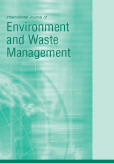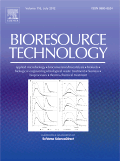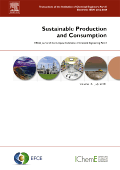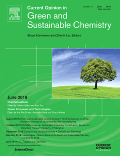
International Journal of Environment and Waste Management
Scope & Guideline
Advancing Practices for a Cleaner Planet
Introduction
Aims and Scopes
- Sustainable Waste Management:
The journal emphasizes methodologies and technologies that enhance the sustainability of waste management practices. This includes the management of municipal solid waste, industrial waste, and hazardous materials. - Environmental Impact Assessments:
Research articles often focus on evaluating the environmental impacts of waste management practices and pollutants. This includes studies on leachate management, emissions from waste disposal sites, and the effects of waste on soil and water quality. - Waste-to-Energy Technologies:
The journal covers advancements in converting waste materials into energy, including biogas production, incineration, and other waste-to-energy technologies that contribute to reducing landfill use. - Innovative Recycling Strategies:
There is a consistent focus on novel recycling techniques and the transformation of waste materials into reusable resources, such as the production of biofuels, compost, and construction materials. - Policy and Governance:
The journal also addresses the socio-economic and regulatory aspects of waste management, examining how policies can influence waste management practices and public participation.
Trending and Emerging
- Circular Economy Approaches:
There is a growing emphasis on research related to circular economy principles, which advocate for the reuse and recycling of materials to minimize waste and environmental impact. This trend is critical as societies seek sustainable solutions to waste management. - Digital and Smart Waste Management Technologies:
Emerging technologies such as IoT, AI, and data analytics are increasingly being incorporated into waste management practices. Research into smart waste management systems is trending, focusing on enhancing efficiency and effectiveness. - Public Engagement and Behavioral Studies:
Studies examining public attitudes, behaviors, and willingness to participate in waste management initiatives are on the rise. This reflects an understanding that community involvement is crucial for successful waste management strategies. - Impact of Environmental Policies:
There is an increasing focus on the implications of environmental policies and regulations on waste management practices, highlighting the need for adaptive governance in response to emerging waste challenges. - Health Impacts of Waste Management:
Research exploring the health implications of waste management practices, particularly in relation to pollution and exposure to hazardous waste, is becoming more prominent, emphasizing the intersection of public health and environmental management.
Declining or Waning
- Heavy Metal Contamination Studies:
Although still relevant, there has been a noticeable decrease in the frequency of studies specifically focused on heavy metal contamination from waste sources, possibly due to a broader shift towards integrated environmental assessments. - Traditional Waste Management Models:
Research focusing solely on traditional waste management models without incorporating innovative technologies or sustainability frameworks seems to be waning, as the field moves towards more progressive and integrated approaches. - Single-Sector Waste Studies:
There is a decline in studies that focus exclusively on one sector of waste management, such as only municipal solid waste or only industrial waste, indicating a trend towards more holistic, multi-sector analyses.
Similar Journals

COMPOST SCIENCE & UTILIZATION
Transforming Waste into Wealth.COMPOST SCIENCE & UTILIZATION is a vital academic journal published by Taylor & Francis Inc that addresses the interdisciplinary aspects of composting, recycling, and sustainable waste management practices. With an ISSN of 1065-657X and an E-ISSN of 2326-2397, this journal ensures wide accessibility to its contributions, even though it does not operate under an open access model. Operating from the United Kingdom with a rich history from 1993 to 2024, the journal is ranked in the Q3 quartile across key categories including Ecology, Soil Science, and Waste Management and Disposal. The journal’s Scopus rankings underscore its impact in the environmental sciences, with notable placements in relevant fields, reflecting its importance in promoting innovative research on composting and sustainable practices. Researchers, professionals, and students dedicated to environmental sustainability will find valuable insights and developments relevant to compost science within its pages, making it an essential resource in the quest for eco-friendly solutions.

Journal of Hazardous Materials Advances
Empowering sustainable practices through rigorous science.The Journal of Hazardous Materials Advances, published by ELSEVIER, is a premier open-access journal dedicated to advancing the understanding and management of hazardous materials. Established in 2021, this journal has quickly gained recognition, securing a place in the prestigious Q1 quartile across multiple categories, including Environmental Chemistry, Environmental Engineering, Health, Toxicology and Mutagenesis, Pollution, and Waste Management and Disposal. With its impactful research indexed under ISSN 2772-4166, the journal not only prioritizes quality but also promotes accessibility to its scholarly outputs, ensuring that vital findings are readily available to the global research community. As part of Scopus, the Journal ranks competitively in various subfields of Environmental Science, reflecting its vital role in addressing contemporary environmental challenges. Researchers, professionals, and students can rely on this journal to provide innovative insights and solutions in the ever-evolving landscape of hazardous material management and its implications for public health and environmental sustainability.

Journal of Material Cycles and Waste Management
Pioneering Sustainable Practices in Waste ManagementThe Journal of Material Cycles and Waste Management, published by Springer, stands as a pivotal resource in the fields of material cycles and waste management, addressing critical challenges related to the sustainability of materials and the efficient disposal of waste. With an impact factor reflective of its significant contribution to the scientific community, this journal publishes innovative research that spans a diverse range of topics, from recycling technologies to lifecycle assessment. The journal ranks in the Q2 category for both Mechanics of Materials and Waste Management and Disposal, highlighting its respected position in academia. Operating without open access, the journal seeks to engage researchers, professionals, and students alike, providing a platform to advance knowledge and foster collaboration in the pursuit of sustainable material management solutions. Located in Japan and adhering to a high standard of editorial excellence, the journal is a must-read for those invested in optimizing resource use and minimizing environmental impacts.

BIORESOURCE TECHNOLOGY
Elevating Research Standards for Environmental SustainabilityBioresource Technology, published by Elsevier Science Ltd, is a leading journal in the fields of bioengineering, environmental engineering, and sustainable resource management. With an impressive impact factor reflected in its Q1 rankings for 2023 across multiple relevant categories, it stands out as a premier source for groundbreaking research from its inception in 1991 to its anticipated contributions through 2024. Bioresource Technology promotes the advancement of technologies and methodologies aimed at the sustainable utilization of biological resources, playing a pivotal role in tackling the challenges of waste management, renewable energy, and environmental protection. Researchers and practitioners are encouraged to contribute and engage with high-quality studies that have significant implications for the global push towards sustainability and innovation. Although the journal does not currently offer Open Access, its subscription model ensures that the rigorous peer-reviewed content remains accessible to those dedicated to advancing the field.

Sustainable Production and Consumption
Championing Environmental Stewardship through KnowledgeWelcome to Sustainable Production and Consumption, a premier journal published by Elsevier in the vibrant field of sustainability and environmental science. With an ISSN of 2352-5509, this journal has established itself as a leading platform for innovative research and discourse on sustainable manufacturing, consumption practices, and environmental technologies. As evidenced by its impressive 2023 rankings—Q1 in Environmental Chemistry, Environmental Engineering, Industrial and Manufacturing Engineering, and Renewable Energy, Sustainability and the Environment—the journal ranks among the top tier of its field. Researchers and professionals alike are invited to explore the journal’s rigorous peer-reviewed articles, which aim to advance the understanding and implementation of sustainable practices across various industries. With a strong commitment to disseminating impactful research, Sustainable Production and Consumption serves as an essential resource for academics, policy makers, and industry leaders seeking to address the challenges of modern environmental sustainability.

Waste Management
Empowering professionals with insights for environmental stewardship.Waste Management, published by Pergamon-Elsevier Science Ltd, stands as a premier journal in the field of waste management and disposal, reflecting its esteemed position with an impressive 2023 impact factor and ranking in the Q1 category. This journal is pivotal for researchers, professionals, and students, offering a rich repository of innovative studies and methodologies aimed at addressing the increasingly critical challenges in waste management. With a dedicated focus on advancing knowledge and practice in environmental science, it encompasses a wide array of topics from waste reduction techniques to sustainable disposal strategies. Founded in 1983, Waste Management continues to be at the forefront of academic discourse, providing invaluable insights into both theoretical frameworks and practical applications, thus playing a vital role in shaping the future of waste disposal practices worldwide.

Recycling
Connecting researchers to foster environmental innovation.Recycling is a renowned international open access journal published by MDPI that has been dedicated to advancing the field of recycling and waste management since its inception in 2015. With a focus on innovative technologies, management practices, and policy frameworks, this journal serves as a platform for researchers, professionals, and students who are eager to explore sustainable solutions in resource recovery and material efficiency. Based in beautiful Basel, Switzerland, Recycling boasts an impressive impact with a 2023 ranking of Q2 in Management, Monitoring, Policy and Law and Q1 in Materials Science (Miscellaneous), signifying its pivotal role in driving forward-thinking research in these critical areas. The journal is indexed in Scopus, with strong performance metrics highlighting its relevance and quality, such as a rank of #42 in Waste Management and Disposal. As an open access publication, Recycling promotes the dissemination of knowledge, ensuring that groundbreaking research is freely available to a global audience. Whether you are a seasoned researcher or a student eager to contribute to the discourse surrounding sustainable practices, Recycling provides a vital resource for those committed to the future of waste management and environmental sustainability.

Detritus
Bridging research and practice in environmental science.Detritus, an esteemed open-access journal published by CISA PUBLISHER since 2018, serves as a vital platform for the dissemination of innovative research in the fields of Environmental Chemistry, Environmental Engineering, and Waste Management and Disposal. Based in Padova, Italy, the journal aims to foster scholarly communication and collaboration among researchers, professionals, and students dedicated to advancing our understanding of environmental challenges and solutions. With its open-access model, Detritus ensures that high-quality research is freely available, bridging the information gap within the scientific community. While currently categorized in the Q3 quartile across multiple environmental science disciplines, the journal is poised to further enhance its visibility and impact, contributing significantly to pressing global issues such as waste reduction and sustainable resource management. As the journal continues to evolve, it encourages submissions that advance theory and application in these critical areas.

Current Opinion in Green and Sustainable Chemistry
Transforming Chemistry with Sustainable MethodologiesCurrent Opinion in Green and Sustainable Chemistry, published by Elsevier, is a premier journal dedicated to exploring the rapidly evolving field of green and sustainable practices in chemistry. With an impressive Q1 ranking in multiple categories, including Catalysis, Process Chemistry and Technology, and Waste Management, this journal plays a pivotal role in disseminating innovative research by providing critical insights into sustainable methodologies and their implementation across various industries. The journal aims to gather leading perspectives from experts to facilitate knowledge exchange that drives the global transition towards more sustainable chemical practices. Based in the Netherlands, Current Opinion in Green and Sustainable Chemistry emphasizes high impact, evidenced by its Scopus ranks, notably achieving the 10th percentile in Environmental Science Management, making it indispensable for researchers and professionals keen on advancing sustainable chemistry solutions. This journal offers a blend of open access articles and subscription-based content, ensuring a wide reach and engagement with its audience.

Rocznik Ochrona Srodowiska
Advancing Environmental Science for a Sustainable FutureRocznik Ochrona Srodowiska, published by the Middle Pomeranian Scientific Society for Environmental Protection, is an esteemed journal dedicated to advancing the field of environmental science in Poland and beyond. With an ISSN of 1506-218X, this peer-reviewed journal has established itself as a vital resource since its inception in 2007, addressing various environmental issues and promoting sustainable practices. Currently holding a Q3 category ranking in the Environmental Science (miscellaneous) field for 2023, it places itself in the 23rd percentile of Scopus rankings, reflecting a growing influence in the broader environmental research community. While the journal is not open access, it serves as an important conduit for researchers, professionals, and students to disseminate their findings and contribute to the interdisciplinary dialogue aimed at tackling pressing environmental challenges. With a commitment to rigorous research and practical applications, Rocznik Ochrona Srodowiska remains an essential platform for fostering innovation and collaboration in environmental studies.